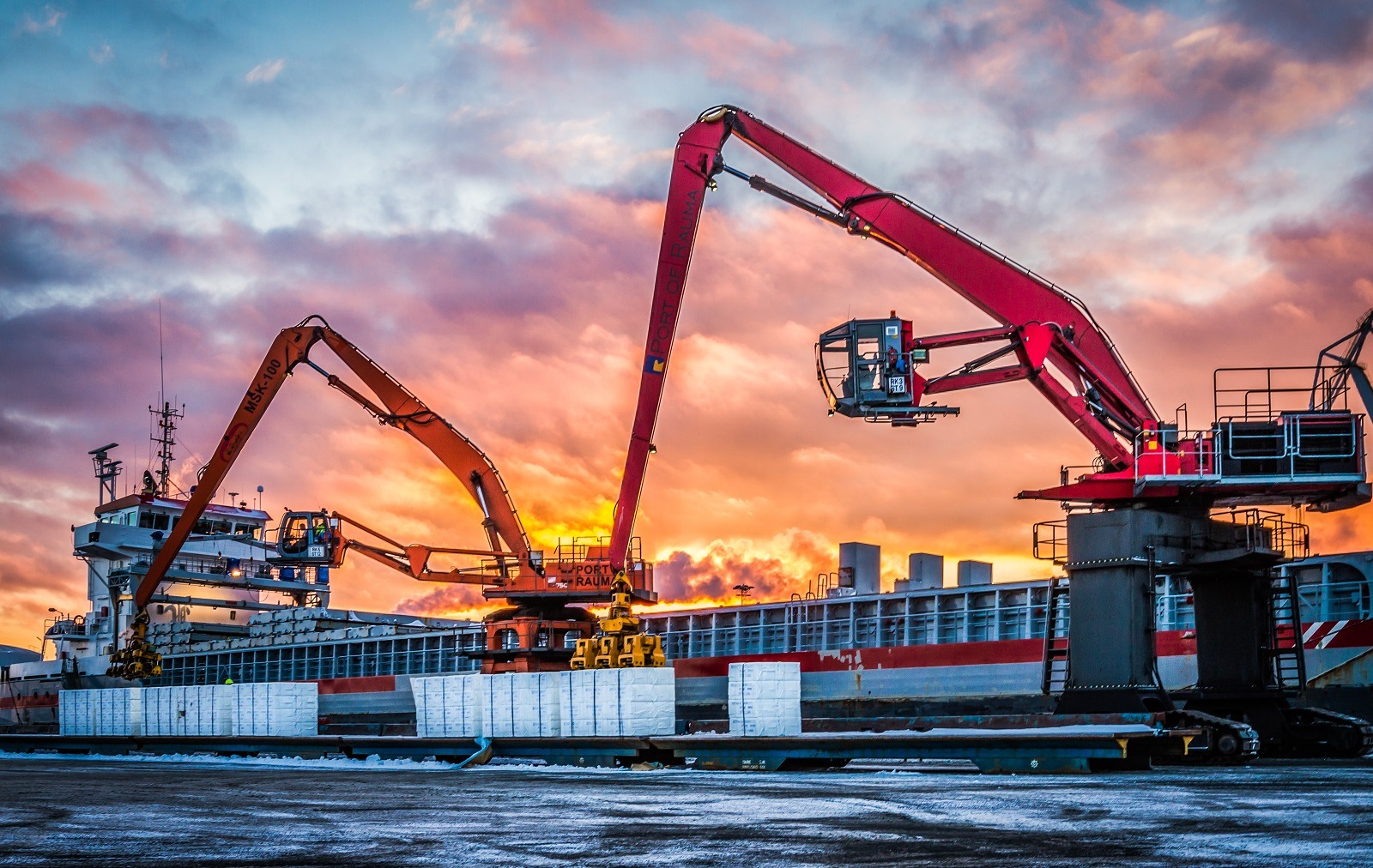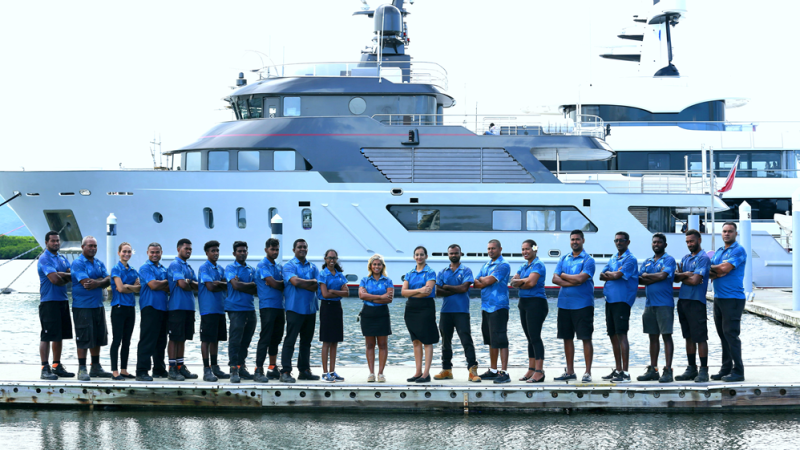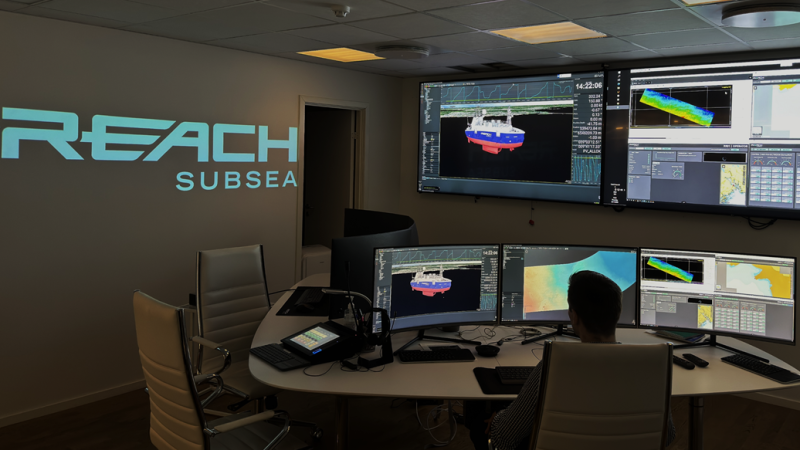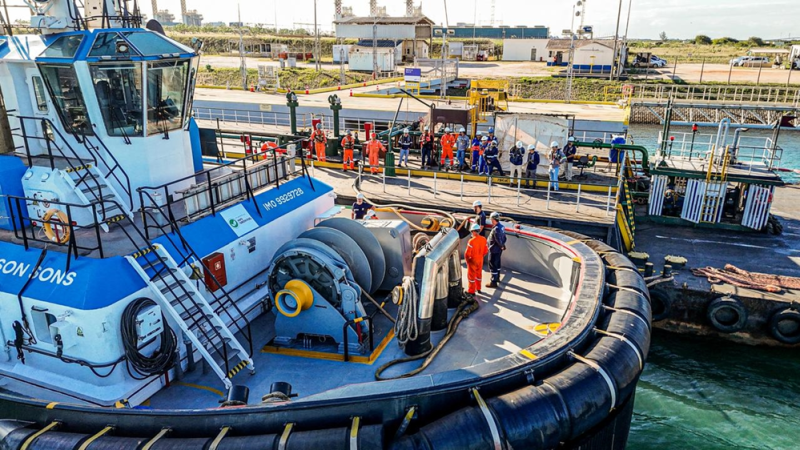Euroports was established in 2006 with the acquisition of TPS in Spain and WCT in Belgium. Since then, the company has progressed steadily towards its objective of becoming the partner of choice for prime customers in the maritime sector by developing the required network of terminals and multi-modal freight forwarding platforms.
 Since its establishment, Euroports’ growth, stem-ming from both acquisitions and a sustained programme of asset renewal, has not stopped – its latest additions being the wind turbine terminal of Port-La Nouvelle in France and the acquisition of Hangö Stevedoring in Finland in 2022.
Since its establishment, Euroports’ growth, stem-ming from both acquisitions and a sustained programme of asset renewal, has not stopped – its latest additions being the wind turbine terminal of Port-La Nouvelle in France and the acquisition of Hangö Stevedoring in Finland in 2022.
The company now operates 34 seaports and 5 inland terminals as well as logistic platforms strategically located on key global trade routes in Europe and China. Euroports also provides its customers with integrated end-to-end supply-chain services including freight forwarding and specialist logistics solutions.
Euroports handles roughly 62 million tons per year of goods across various end-markets including fertilisers, metals, sugar, liquid bulk and more. It is also increasing its exposure to newer and fast-growing commodities, such as green energies – a core part of the growth strategy.
Essential Operator
“We specialise primarily in bulk and break-bulk, but we also handle some 350.000 TEU containers per year, have an important liquids terminal in Germany and can handle project cargo as well,” says Group COO Erik Klönhammer.
Erik, who started in his role as COO in 2020, just days before Covid-19 hit the headlines, remarks that even the global pandemic has not hindered business growth. Quite the contrary in fact – in 2020 Euroports’ financial results exceeded those achieved in 2019.
“Growing the business in these unprecedented times has been one of our major achievements, confirming the group’s resilience. With regard to the type of our business, we were declared as an essential service for all the countries, so the port operations remained open. That presented a challenge of a different kind – making sure that all our staff were safe. A challenge that we managed to handle very well.”
Regardless of the pandemic, staff safety has always been firmly embedded in the company’s operation, he insists. “Ports are a dangerous environment and we want to make sure that everyone returns home healthy and safe at the end of each work shift.”
The company has introduced a specific risk management programme that has brought tangible results – since its introduction, the number of safety-related incidents has decreased each year.
Handling the Challenge
Flexibility and agility have also been key for continued financial performance that has improved steadily and steeply – while in 2019 Euroports achieved about € 600 million in sales, the figure is projected to be € 1 billion in 2022.
“Every crisis brings oppor-tunities as well, and this is also the case now with the Russian-Ukrainian conflict, which is certainly impacting global trade flows, as is China’s policy of zero Covid tolerance affecting container shipment. Flexibility is key in these circumstances and our position is strong enough to be able to offer that.”
Euroports’ advantage is its sheer capacity: the company currently controls 1.5 million square metres of warehousing and 5 million square metres of concession land. These facilities have been specifically set up to cater for specialised needs for liquid, bulk, break-bulk and containerised goods where required.
The terminals offer various types of specialised warehousing, including facilities with climate control and a terminal that has been awarded the International Food Standard (IFS) certification. Capacity combined with advanced technology is a competitive advantage which is hard for smaller operators to match.
Extra Value
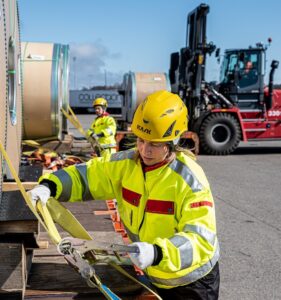 Erik Klönhammer points out that adding value to customers has been an important factor. For example in Belgium, the company has a temperature and humidity-controlled stock zone as well as a warehouse equipped to process steel plates to exact dimensions as required by customers.
Erik Klönhammer points out that adding value to customers has been an important factor. For example in Belgium, the company has a temperature and humidity-controlled stock zone as well as a warehouse equipped to process steel plates to exact dimensions as required by customers.
In Belgium Euroports operate Europe’s largest independent bulk sugar terminal. This dedicated and IFS-certified sugar facility specialises in food-quality sugar handling from storage to bagging and has an accredited laboratory available for the on-site quality control of sugar.
Euroports is also the operator of the terminal dedicated to Renewable Marine Energies (MRE) in Port-La Nouvelle, France, and will assume the logistical support in the port area of the installation phase, including the assembly of the wind turbines on the floats. An important step for the company, signifying its support for green energy.
Reducing Carbon Footprint
All Euroports’ current and planned activities are considered with the environment in mind. In June, the company installed the first fully electric Liebherr crane in Europe in its bulk terminal in the port of Rostock. The crane is equipped with the latest technology which supports Euroports’ path of 40% CO2 emission reduction by 2030.
“We are constantly looking to electrify our equipment and where full electrification is not yet possible, we are investing in hybrid equipment,” says Mr Klönhammer, adding that the company also puts a particular focus on the handling of commodities that accelerates the sustainability agenda of its customers. “It’s not only about greener equipment but also greener commodities, or – for commodities such as coal – greener methods of transportation.”
Moving Forward
He affirms that modernising current assets to improve sustainability is an ongoing task, but the company is also set to invest on a more global footing. “We are constantly looking to expand our network of terminals in Europe – that can be in the Mediterranean or Eastern Europe or the Baltic. We are also looking at South America and Southeast Asia to follow our clients and to cover the origin as well as the final destination of commodities.”
Needless to say, this can only be achieved with the core asset – human resources – and Erik reflects that while finding the right talent is a challenge, the company has programmes in place to make sure its staff remains motivated and committed across the countries.
“We consider our people to be our most important asset and strive to provide a working environment where people can thrive and develop. Only a motivated and skilled workforce can help us move forward towards our ambitious objective – to expand globally with a reduced environmental footprint.”
